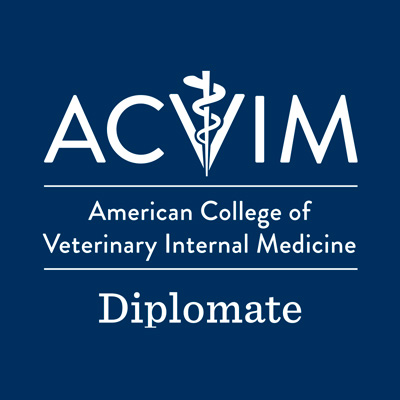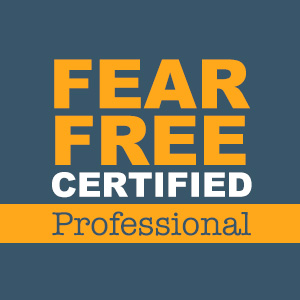


Dr. Christina Bové
Diplomate, American College of Veterinary Internal Medicine (Cardiology)
Dr. Christina Bové is a board-certified small animal cardiology specialist in Denver. She is based out of Broomfield and is available to serve general practices and emergency animal hospitals throughout her service area in the Denver metropolitan region.
Biography
Dr. Christina Bové received her Doctorate of Veterinary Medicine from the College of Veterinary Medicine at Cornell University. She then completed a rotating small animal internship at LeadER Animal Specialty Hospital in Fort Lauderdale, Florida. Following her internship, Dr. Bové worked as an Emergency and Relief General Practice Clinician in Houston, Texas, and completed an Internal Medicine internship at the Mississauga Oakville Veterinary Emergency Hospital in Canada before working in preclinical heart failure research at the Texas Heart Institute in Houston, Texas. Dr. Bové then completed a combined cardiology residency and Master’s program at the College of Veterinary Medicine at Colorado State University. In 2018, Dr. Bové became a Board-Certified Diplomate in the American College of Veterinary Internal Medicine (Cardiology).
Dr. Bové is dedicated to supporting clients and their pets with heart disease. She places enjoys fostering collaborative relationships with pet owners and referring primary care veterinarians, believing that together, we can deliver the best possible care for our patients. She is particularly interested in congenital heart disease, advanced congestive heart failure, and complex arrhythmias. She loves teaching and has mentored students, interns and residents. Prior to joining MOVES in 2024, Dr. Bové practices as a cardiologist in private practices throughout Colorado.
When not working, Dr. Bové can be found hiking or running with her husband, toddler and dog (Darcy). Her cat (Izzy) prefers to stay on the couch. Dr. Bove is passionate about veterinarian wellness and is wellness/nutrition coach, and certified personal trainer. She also is addicted to Jane Austen, specifically Pride & Prejudice!
CV
- 2024
Joined MOVES - 2017-2024
Cardiology practice in Colorado. - 2017
Completed cardiology residency and Masters program at Colorado State University College of Veterinary Medicine - 2011
Completed internal medicine internship at Mississauga-Oakville Veterinary ER Hospital & Referral Group - 2007
Completed small animal and surgical internship at Veterinary Specialists of South Florida - 2006
Earned DVM from Cornell University College of Veterinary Medicine - 2001
Graduated from Cornell University with a degree in Biological Science (Animal Physiology)
Fox PR, Keene BW, Bové CM et al. Long-term incidence and risk of noncardiovascular and all-cause mortality in apparently healthy cats and cats with preclinical hypertrophic cardiomyopathy. J Vet Intern Med. 2019 Nov;33(6):2572-2586.
Fox PR, Keene BW, Bové CM et al. International collaborative study to assess cardiovascular risk and evaluate long- term health in cats with preclinical hypertrophic cardiomyopathy and apparently healthy cats: The REVEAL Study. J Vet Intern Med. 2018 May; 32(3):930-943.
Bové CB, Ames M and Scansen B. “ECG of the Month” J Am Vet Med Assoc. 2017 Dec 15;251(12):1383-1386
Tran L, Hernandez-Rivera M, Sampaio L, Zheng Y, Bove C, Wilson L, Perin E, The Use of Gadolinium-Carbon Nanostructures to Magnetically Enhance Stem Cell Retention for Cellular Cardiomyoplasty.Biomaterials. Accepted Sept 27, 2013.
Zheng Y, Sampaio LC, Li K, Silva GV, Cabreira-Hansen M, Vela D, Segura AM, Bovè C, Perin EC. Safety and feasibility of mapping and stem cell delivery in the presence of an implanted left ventricular assist device: a preclinical investigation in sheep. Tex Heart Inst J. 2013; 40(3):229-34.
Razavi M, Nazeri A, Bové C et al, Comparative Efficacy of Nebivolol and Metoprolol to Prevent Tachycardia-Induced Cardiomyopathy in a Porcine Model presented by Dr. Nazeri at the American Heart Association Scientific Sessions 2013, Dallas.
Nazeri A, Bové C et al. “The Effect of Nebivolol to Prevent Pacing and Tachycardia Induced Cardiomyopathy in the Presence of Sustained Tachycardia” In preparation.
Bové CB. “Abdominal distension in a golden retriever.” Compend Contin Educ Vet. 2011 Jun;33(6):E6
Bové CB. “ECG of the Month: Sinus bradycardia.” J Am Vet Med Assoc. 2010 Sep 1; 237 (5):509-11.
Bové CB, Gordon, SG, et al. “Outcome of minimally invasive surgical treatment of heartworm caval syndrome in dogs: 42 cases (1999-2007).” J Am Vet Med Assoc. 2010 Jan 15; 236(2):187-92.
Bové CB, Roberts, BR. “What’s Your Diagnosis? Spinal Cord Compression in a Dog” J Am Vet Med Assoc. 2010 Jan 1;236(1):33-4
Bové CB, Bondy PJ. “Clinical Snapshot: Inappetence, Ataxia, and Weakness in an Old English Sheepdog with endocarditis”. Compendium: Continuing Education for Veterinarians. Sept 2007.
Send a Message to Dr. Bové
What is a board-certified veterinary cardiologist?
A veterinary cardiologist is a specialist that has advanced training in the heart and circulatory system. To become a board certified veterinary cardiologist a veterinarian usually completes a one year internship followed by extensive specialized training in an approved residency training program (usually 3-5 years).
Board certified veterinary cardiologists focus on diagnosing and treating disease of the heart and lungs, which include Congestive heart failure (CHF), Heart muscle disease (Dilated cardiomyopathy or hypertrophic cardiomyopathy), age-related changes to the valves of the heart (Degenerative mitral valve disease), coughing and other breathing problems, congenital (present at birth) heart defects, cardiac arrhythmias (problems with the rate and/or rhythm of your animal’s heart), diseases of the pericardium (sac surrounding the heart), cardiac tumors, high blood pressure (hypertension), and pulmonary hypertension (high blood pressure in the lungs).
Veterinary cardiology specialists will perform a complete and thorough physical examination on your animal, and based on these initial findings, additional tests will be discussed. Depending on your animal’s condition, diagnostic testing or treatments may include echocardiography (sonogram) – non-invasive ultrasound imaging of the heart, electrocardiography (ECG) – non-invasive electrical reading of the heart’s rhythm, blood pressure evaluation, Holter monitor – 24 hour ECG performed at home, or radiography (x-rays) of the chest and lungs.
Adapted from “What is a Board-Certified Veterinary Cardiologist?” on vetspecialists.com.

